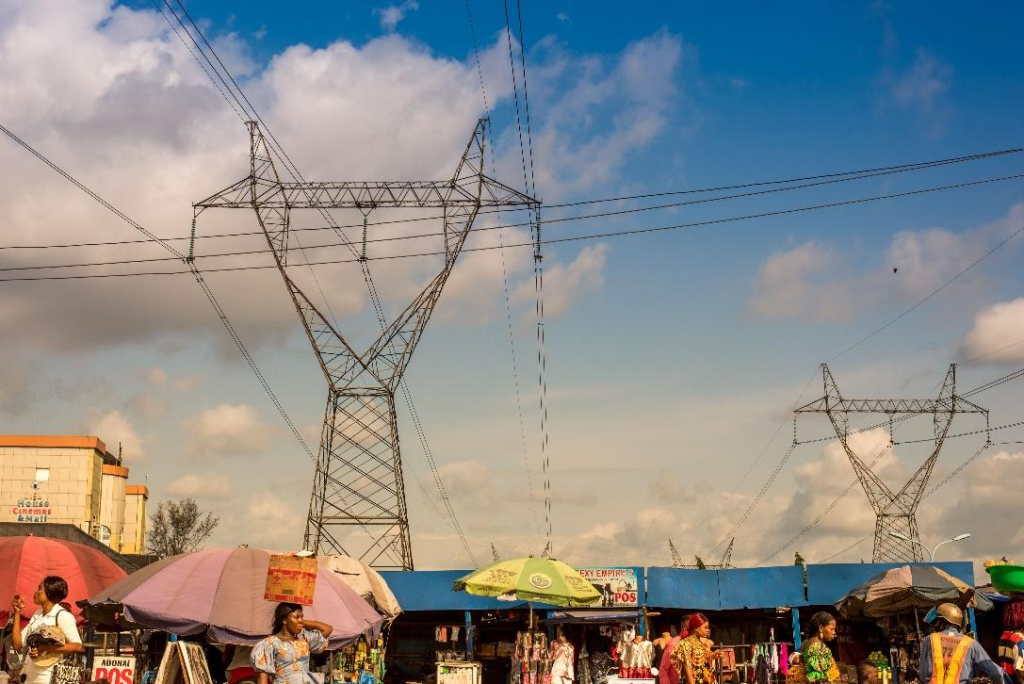Prince Adewole Adebayo, leader of Nigeria’s Social Democratic Party has called for greater investment in Nigeria’s power infrastructure, citing major inadequacies impeding economic growth.
‘Nigeria faces a crippling paradox: we aspire to lead the Continent’ economic future, yet it cannot keep the lights on’, he has stated.
Nigeria loses an estimated $29 billion every year to power shortages, while more than 80 million Nigerians live without electricity altogether.
For businesses and households, private diesel generators have become an unavoidable expense – costly, polluting, and unsustainable. Blackouts are now a routine feature of daily life, undermining productivity, driving up costs, and eroding public faith in government.
Adebayo argues that this cycle of shortages is choking the economy at its roots. A country of more than 200 million people with a vibrant private sector, he says, should not be held hostage by a grid paralysed by decades of neglect.
‘The power grid has epitomised the economic moment Nigeria is in’, Adebayo argues. ‘Mismanagement, underinvestment, and a lack of strategic prioritisation have created a decaying system that is suffocating everyday Nigerians’.
His warning is well placed. Electricity is the foundation of any modern economy. Healthcare facilities, schools, factories, and heavy industry cannot function without stable power.
Nor can Nigeria’s growing digital economy, which requires uninterrupted supply to attract investment and sustain innovation.
This is not a narrow technical issue – It is a national development crisis.
Long-Standing Problems
Nigeria’s grid is among the weakest in the world.
It reaches only about 60 percent of its population, leaving 86 million people without electricity at all, according to the World Bank.
Even though existing infrastructure could in theory transmit between 14 and 16GW, the grid rarely delivers more than 6GW. By comparison, Italy produces 40GW from solar power alone, with a population a quarter the size of Nigeria’s and with lower total solar potential.
The causes are depressingly familiar: decades of underinvestment in transmission lines, chronic mismanagement, and governments content to paper over the cracks with short-term fixes.
The state-owned Transmission Company of Nigeria has repeatedly failed to provide a credible plan for modernisation. The result is a system that collapses under even moderate demand, leaving the country’s economic ambitions perpetually capped.
Adebayo believes this bottleneck is one of the greatest brakes on Nigeria’s development. ‘We must prioritise a total overhaul of our transmission and distribution facilities’, he says. ‘They are smothering the young businesses trying to push Nigeria forward’.
A Path Forward
Nigeria’s challenges are not unique. Energy production has long been the dividing line between countries that stagnate and those that accelerate.
But for a country with the economic potential of Nigeria, a failure to consistently supply energy is an enormous waste.
The first step is acknowledging the scale of the problem. Nigeria cannot continue treating energy shortages as inconveniences to be endured. They are the single greatest barrier to long-term growth. Strategic investment is needed to overhaul the existing grid, ensuring consistent supply to businesses and households even during peak demand.
A second step is diversifying energy sources. Nigeria’s dependence on natural gas plants in the south leaves it dangerously exposed to both price shocks and supply disruptions. Combined with frequent sabotage of energy infrastructure in the north, even minor interruptions can cascade into nationwide blackouts, posing serious long-term risks to energy security.
Investment in hydropower has begun but needs greater expansion. It remains dogged by governmental complacency and regulatory challenges.
Solar and wind offer additional promise, particularly for rural electrification, where extending the central grid has proven too slow and expensive.
Decentralised, digital microgrids could transform energy access for millions of rural Nigerians currently left in the dark.
But investment alone will not be enough.
Adebayo argues that reversing the country’s mindset is just as important as new projects. Power reform, he says, should not be seen only as a technical fix but as an opportunity to leapfrog into the modern age.
With the world’s youngest population and rapidly growing digital literacy, Nigeria could become a leader in integrating smart technology into its grid management. Digital monitoring and automated distribution could replace outdated manual systems that leave the grid fragile and corruptible.
The Cost of Inaction
If reform stalls, the consequences will be severe. Dependence on diesel generators – already estimated to number more than 22 million across the country – will deepen. The economic cost will rise, environmental damage will worsen, and everyday Nigerians will become sick of having to pay the price of government mismanagement. Small businesses, already suffocated by increasing global energy costs, will be further discouraged from developing – potentially unable to even open their doors.
A National Priority
Adebayo’s belief that reforming the grid must be treated as a top national priority is wise. Reliable electricity is not a luxury – it is the foundation for growth, the condition without which no other ambition can be realised. ‘Nigeria will never reach its potential as long as its power centres cannot operate’, he warns.
The post Prince Adewole Adebayo: To be successful, Nigeria must modernise its power infrastructure appeared first on Vanguard News.

